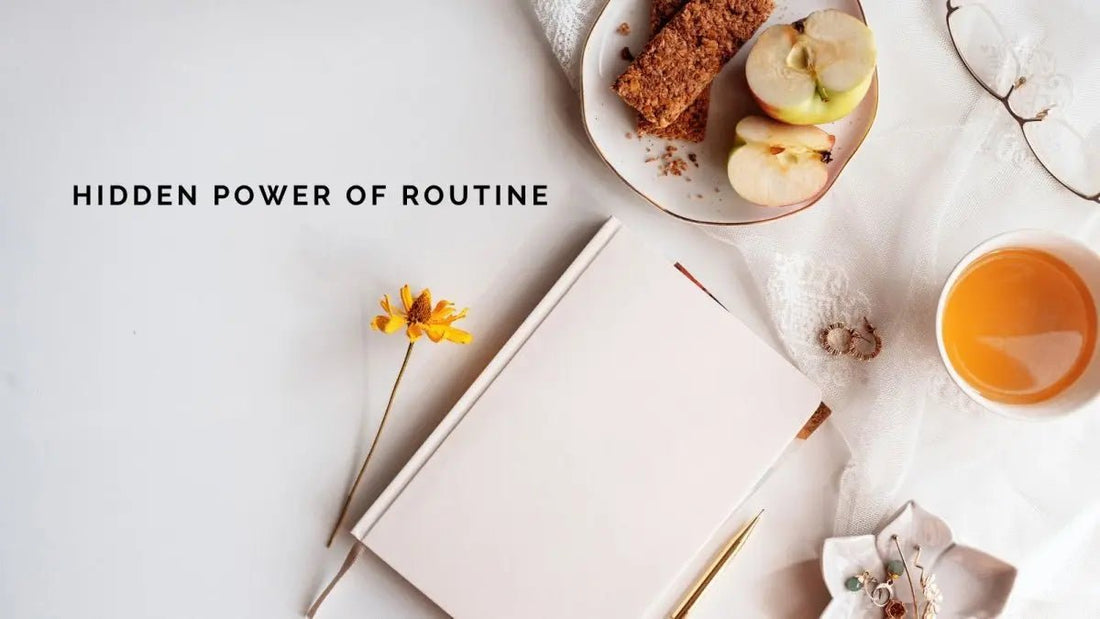
Hidden Power of Routine: Why Establishing a Daily Schedule Can Transform Your Mental Health
Share
We often hear that variety is the spice of life, and spontaneity can certainly add excitement and adventure. But when it comes to our mental health and emotional well-being, there’s another unsung hero that deserves recognition: routine.
When we think of routine, we might picture repetitive, mundane tasks or a rigid schedule that feels suffocating. However, routines are much more than a list of activities or obligations. They provide a framework that can make life more manageable and less overwhelming. Especially for those struggling with anxiety, depression, or other mental health challenges, routines can become powerful coping mechanisms. Here’s why:
Reducing Anxiety Through Predictability
Routines create predictability, which is incredibly important for anyone dealing with anxiety. Knowing what to expect, even in small things like having breakfast at a set time or starting the day with a short meditation, can reduce feelings of uncertainty and worry.
This predictability becomes a buffer against stressors, helping the mind stay calm and focused.
Encouraging Healthy Habits
A well-established routine allows us to intentionally incorporate healthy habits into our daily lives.
Whether it’s scheduling exercise, planning nutritious meals, or dedicating time for self-care, a routine helps us prioritize what truly matters for our well-being. It also minimizes decision fatigue, making it easier to choose healthy options consistently.
Boosting Productivity and Motivation
It’s common to feel overwhelmed by long to-do lists and mounting responsibilities. But when tasks are integrated into a routine, they no longer seem insurmountable. Instead, we can approach our day with clarity and purpose, knowing exactly when and how we’ll tackle each obligation.
This sense of control enhances our productivity and fosters motivation, allowing us to accomplish more with less mental effort.
Improving Sleep and Relaxation
A bedtime routine might sound trivial, but it can have profound effects on our sleep quality. By consistently preparing for bed at the same time and engaging in relaxing activities—like reading or gentle stretching—we signal to our brain that it’s time to wind down. This helps regulate our circadian rhythm, leading to deeper, more restorative sleep. A good night’s sleep, in turn, is crucial for emotional regulation and resilience.
Cultivating a Sense of Stability During Uncertain Times
Life is unpredictable, and sudden changes can disrupt our sense of security. During these times, a routine can act as an anchor, providing stability when everything else feels out of control. It’s a way of asserting our own agency and creating a safe space that we can return to, regardless of external circumstances.
How to Build a Supportive Routine
Creating a routine doesn’t mean scheduling every minute of your day. It’s about finding a balance that works for you and aligns with your goals and values. Here’s how you can start:
Start Small: Choose one or two activities to incorporate into your routine, such as having breakfast at the same time each day or going for a short walk in the morning.
Be Consistent, but Flexible: While consistency is key, allow yourself room to adapt. Rigid adherence can sometimes lead to frustration or guilt if the routine is disrupted. Embrace flexibility and make adjustments as needed.
Include Self-Care Activities: Whether it’s journaling, meditation, or simply taking a few deep breaths, include self-care practices that nourish your mind and body.
Celebrate Your Progress: Acknowledge the positive impact your routine is having on your life. Celebrate small wins, like sticking to a morning routine for a week or completing a task that previously felt daunting.
A routine doesn’t have to be boring, and it certainly doesn’t have to look the same for everyone. Think of it as a compass guiding you through each day, helping you find your way when things get tough and providing structure when you need it most. Your mental health will thank you for it.